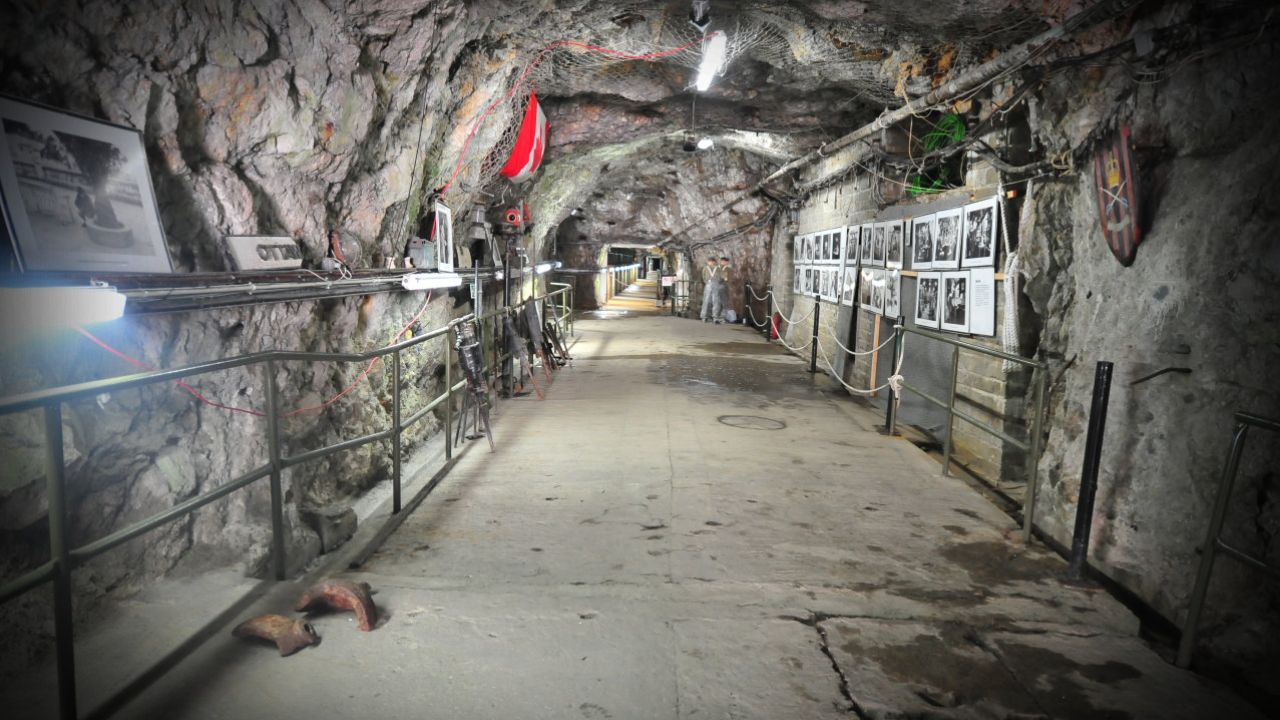World War II in Gibraltar

World War II had a significant impact on Gibraltar, the British Overseas Territory located at the southern tip of the Iberian Peninsula. Gibraltar played a crucial strategic role during the war due to its location at the entrance to the Mediterranean Sea. Here's an overview of World War II in Gibraltar:
-
Strategic Importance: Gibraltar's strategic location made it a key British naval and military base during World War II. Control of the Strait of Gibraltar allowed the Allies to control access to the Mediterranean Sea and monitor movements in and out of the Mediterranean.
-
Fortifications and Defenses: Gibraltar had been fortified for centuries, and these defenses were modernized and expanded in the lead-up to the war. The Rock of Gibraltar was equipped with artillery batteries, tunnels, and underground bunkers to withstand air raids and potential attacks.
-
Naval Base: Gibraltar served as a vital British naval base during the war. The Royal Navy operated from Gibraltar to protect Allied convoys, monitor Axis naval movements, and conduct anti-submarine operations.
-
Air Base: Gibraltar's North Front Airport became an important air base during World War II. British and American aircraft operated from here, conducting patrols and reconnaissance missions in the region.
-
The Battle of the Atlantic: Gibraltar played a key role in the Battle of the Atlantic, where Allied forces sought to protect shipping routes and convoys from German U-boats (submarines). The Rock was a base for anti-submarine warfare operations.
-
Operation Torch: In November 1942, Gibraltar served as a launching point for Operation Torch, the Allied invasion of North Africa. American and British forces departed from Gibraltar and landed in Morocco and Algeria, marking a significant turning point in the war in North Africa.
-
Civilian Life: Despite the wartime conditions, Gibraltar's civilian population endured the challenges of living in a military garrison. The local population adapted to wartime rationing and air raid precautions.
-
Air Raids: Gibraltar was subject to occasional air raids by German and Italian aircraft. Although these raids caused some damage and casualties, the defenses of the Rock held firm.
-
End of the War: World War II ended in 1945, and Gibraltar continued to play a role in post-war events. The territory's strategic importance remained high during the early years of the Cold War.
-
Post-War Developments: After the war, Gibraltar remained a British Overseas Territory, and its strategic value in the context of the Cold War was evident. The Rock's military importance continued to influence international relations in the region.
World War II left a lasting impact on Gibraltar, with its infrastructure and defenses evolving to meet the challenges of modern warfare. Today, the legacy of Gibraltar's wartime role can still be seen in its military fortifications and historical sites.
-
Gibraltar Information
-
Gibraltar Annual Events
-
Gibraltar Art Galleries
-
Gibraltar Hotels
-
Gibraltar Nature Reserve
-
Gibraltar Nightlife
-
Things to do in Gibraltar
-
Gibraltar Walks and Hiking Trails
-
Gibraltar Restaurants
-
Gibraltar Beaches
-
Gibraltar Gardens
-
Gibraltar's Marinas
-
Gibraltar's Political Status
-
Gibraltar Tunnels
-
World War II in Gibraltar
-
Neanderthals in Gibraltar
-
Gibraltar Caves
-
Gibraltar's Barbary Macaques
-
Facts about Gibraltar